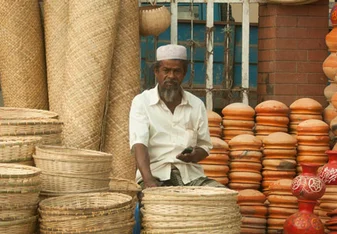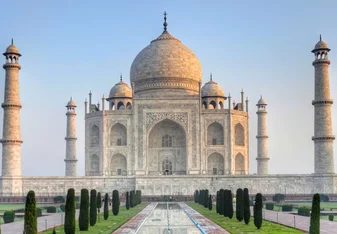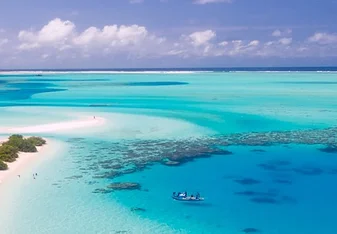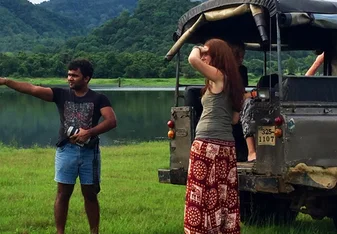Volunteer Programs in Nepal
About
Nepal has captured the imagination of travelers for centuries, with its impossibly large mountains, serene monasteries, and beautiful cultural heritage. It is an increasingly popular destination for backpackers, adventurers, and other wanderers, who come hoping to absorb some of the spirituality the country is known for.
However, Nepal isn’t a mystical far away land. It is a real country filled with real people, one-third of which live under the poverty line. It is one of the least developed nations in Asia and has struggled greatly to recover since the 2015 earthquakes. Volunteering in Nepal allows travelers to give back to the country, taking their trip beyond personal spiritual enrichment and into practical, useful, and productive support.
Project Types
Travelers to Nepal have the opportunity to help remedy some of the country’s socioeconomic issues through volunteer programs, which span from childcare to agriculture, education, and community development.
Teaching
The demand for English teaching in countries like Nepal continues to rise, as English skills can enable a child to develop a good career in the tourism industry. As a volunteer English teacher in Nepal, you could be working in Kathmandu or in remote Himalayan villages, either in a public school or a Buddhist monastery.
English teaching experience is not always needed but is desired, and you should be committed to providing useful and lasting education.
Women’s Issues
As is the case in many developing nations, women and young girls often lack the education to enable them to be financially independent. Many NGOs in Nepal are dedicated to providing education and support to help women make a living for themselves and their families. As a volunteer in Nepal, you could be teaching English to young girls, helping women sell their handicrafts, or supporting women’s interest groups in a community.
Agriculture
Agriculture is still a huge part of the Nepalese economy and way of life, and volunteers are always welcome to get their hands dirty. As long as you are in good health and eager to learn, you can help a local community with planting, harvesting, and animal care. These placements are likely to be very remote, which gives you a wonderful opportunity to fully immerse yourself in a different way of life.
Planning Your Trip
Nepal is a popular volunteering destination, and a variety of volunteer programs can be found in almost every corner of the country. Make sure you choose a project you are both passionate about and well-suited for, and try to stay as long as possible.
Where to Volunteer in Nepal
The capital of Nepal is Kathmandu, and this is where many of the volunteering organizations are based. There are many projects in Kathmandu, especially in education, childcare, and women’s issues. Pokhara, the country's second largest city and a popular tourist destination, also has some good placements.
Many volunteering opportunities in Nepal are in remote Himalayan villages, as these are the communities that often need the most help. Volunteering in a village can be uniquely rewarding, as it allows you to truly immerse yourself in a community. If you prefer to stay in a town where there may be other Western travelers and volunteers, a volunteer placement in a remote community may not be the best option.
Housing & Accommodation
Placements with larger organizations based in cities may house you in a shared house with other volunteers, while those in rural communities are more likely to involve staying with a local family. Housing tends to be very basic, with few comforts and amenities, but you can expect to be warmly welcomed by the community.
Language Requirement & Tips
You are not usually required to speak another language while volunteering, and everyone at your volunteering organization should speak English. Cities and towns that are on the tourist trail will have some English speakers, but these will become rarer the further out you go.
It is polite -- and useful -- to try to learn a few words of Nepali. Do bear in mind, however, that Nepal has over 100 recorded languages, and people in your village may not speak Nepali, but their own local language. In these cases, an open and curious approach to learning during your stay is the best way forward.
Packing Tips
Nepal is famously high up in the mountains, but it can get warm in the lower regions. It’s best to bring a selection of layers for your stay in Nepal, which will allow you to adjust depending on the altitude or time of day. Bring some shorts and t-shirts, but also pack cold-weather items such as fleeces, thermal under layers, and a good rain jacket. A pair of high-quality hiking shoes or boots is also necessary.
Remember that your legs and shoulders need to be covered for visits to Buddhist monasteries. Also, don’t forget to pack sunglasses and plenty of sunscreen, as UV exposure is stronger at higher altitudes.
Additional Tips
You can buy a SIM card in Kathmandu upon arrival -- the airport is usually the easiest place. There are two main cell providers: Ncell, the largest and easiest to buy a SIM for, and Nepal Telecom, which involves a longer process to sign up for a SIM. However, Nepal Telecom has much better reception in the mountains, so you should consider using them if you are going to be staying at high altitudes.
Keep in mind that internet signal is virtually non-existent outside of the Kathmandu Valley and Pokhara.
Health & Safety
Nepal is a safe country, and few travelers encounter issues during their stay. Your biggest risks are probably food poisoning and injury during trekking and similar activities.
Health
Health facilities outside of Kathmandu are small and often poorly equipped, so it is crucial that you ensure your health insurance covers evacuation to Kathmandu or overseas if necessary. Your level of insurance will also depend on the activities you plan to do in Nepal, such as trekking, climbing, or adventure sports.
There are no mandatory vaccinations to enter the country, but it’s a good idea to check with your volunteering organization for any risks in the specific region you will be staying in. You should also ask if they will have a first-aid kit on site or if you are expected to bring your own.
Tap water is not safe to drink, and should always be boiled, bottled, or purified. Avoid drinking ice or ordering salads, and avoid street food stalls that aren’t bustling with customers.
If you are going into the mountains, your trip should include an appropriate period of acclimatization to avoid altitude sickness.
Safety
Nepal is a generally safe country and there are no major concerns to worry about. As always, be aware of pickpockets in busy city areas, and avoid showing off expensive items such as cameras and phones.


















